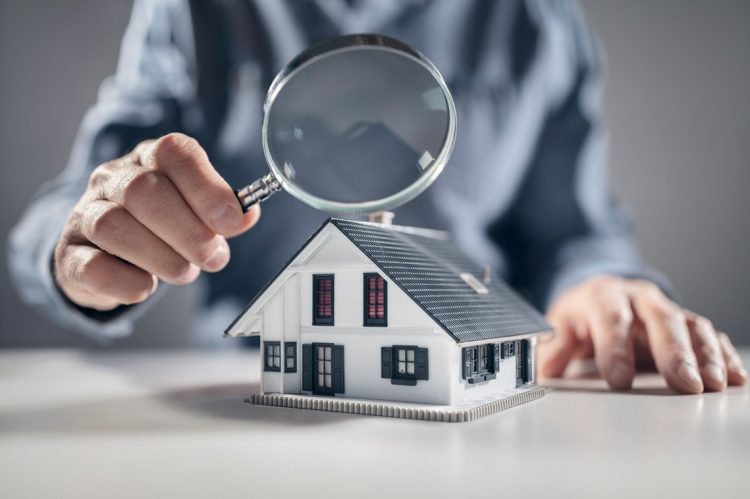Buying an as-is property can be a risky but rewarding investment. You must inspect thoroughly and prepare to make informed decisions.
I will provide an education on the following:
- Key areas to inspect in an as-is home.
- Specific advice on conducting and preparing for inspections.
- Typical problems, potential costs, and buyer rights regarding as-is purchases.
There are several things to know before buying a house as-is. Maximum Real Estate Exposure sums it up nicely. This excellent resource shows significant effort in educating the public.
Let’s examine how you can effectively inspect an as-is property.
Key areas to inspect in an as-is home
- Foundation and structure
- Look for cracks in walls, ceilings, and floors: Small cracks may indicate settling, but large cracks can signal severe structural issues.
- Check for uneven floors and doors that don’t close properly: These signs often suggest foundation problems or significant settling.
- Inspect the basement for signs of water damage or mold: Water intrusion can weaken the foundation and create mold, which poses health risks.
- Roof and attic
- Examine the roof for missing or damaged shingles: Missing shingles can lead to leaks and water damage inside the home.
- Look for leaks, mold, and proper insulation in the attic: Ensure the attic is dry and well-insulated to prevent heat loss and water damage.
- Ensure the gutters are in good condition and free of debris: Properly functioning gutters prevent water damage to the roof and foundation.
- Plumbing
- Check for leaks under sinks and around toilets: Leaks can cause significant water damage and mold growth.
- Inspect the water heater for age and signs of corrosion. A failing water heater can cause water damage and inefficient heating.
- Test water pressure and drainage in all faucets and showers: Low or slow drainage can indicate plumbing issues or blockages.
- Electrical system
- Look for outdated wiring and circuit breakers: Old wiring can be a fire hazard and may not meet current electrical codes.
- Test all outlets and light switches for proper function: Ensure the electrical system works correctly and safely.
- Check for exposed wires and other potential hazards: Exposed cables are dangerous and must be addressed immediately.
- HVAC system
- Inspect the furnace, air conditioning unit, and ductwork: Look for wear and tear signs and ensure they function correctly.
- Check filters and vents for cleanliness: Dirty filters and vents reduce efficiency and can affect air quality.
- Test the thermostat to ensure it’s working correctly: An inaccurate thermostat can lead to inefficient heating and cooling.
- Exterior
- Examine the siding, windows, and doors for damage: Damaged siding and windows allow water and pests into the home.
- Check for proper sealing and caulking around windows and doors: Good sealing prevents drafts and water damage.
- Look for cracks in the driveway and walkways: Cracks can be a tripping hazard and may indicate shifting ground or foundation issues.
Preparing for inspections
- Gather necessary tools
- Bring a flashlight, notepad, and camera: Documenting findings is crucial for making informed decisions.
- Wear comfortable clothing and protective gear: Proper attire allows for thorough and safe inspections.
- Review property disclosures
- Obtain and review any available disclosure documents from the seller: Disclosures can provide insights into known issues and previous repairs. Remember, some homes do not sell due to their condition.
- Create a checklist
- List all areas and systems to inspect: A checklist ensures you cover all critical aspects of the home.
- Prioritize the most critical components, such as structure and plumbing. Focus on major systems that can have significant repair costs.
- Schedule multiple visits
- Visit the property at different times of day: Different lighting conditions can reveal issues that may not be visible during a single visit.
- Inspect under varying weather conditions: Rain, snow, and heat can affect the home differently and reveal hidden problems.
Typical problems found in as-is properties and their potential costs
- Foundation issues
- Cost: $5,000 to $50,000+
- Severe cracks or shifting require extensive repair: Foundation repairs are costly but necessary to ensure the home’s structural integrity.
- Roof damage
- Cost: $5,000 to $10,000+
- Replacement of shingles or entire roofs can be expensive: A damaged roof can lead to significant water damage inside the home.
- Plumbing leaks
- Cost: $1,000 to $10,000+
- Leaks can lead to mold and extensive water damage. Plumbing repairs can be expensive and disruptive, especially if walls or floors need to be opened.
- Electrical problems
- Cost: $1,500 to $10,000+
- Rewiring and panel upgrades are costly but necessary: Electrical issues pose a significant fire hazard and must be addressed.
- HVAC replacement
- Cost: $3,000 to $7,000+
- Replacing old systems ensures efficient heating and cooling: Inefficient HVAC systems can lead to high energy bills and uncomfortable living conditions.
Disclosure laws and buyer rights
- Seller’s obligations
- In some states, sellers must disclose known issues but are not required to fix them. Disclosures help buyers understand the property’s condition.
- Review state-specific disclosure laws for accurate information: Laws vary by state, so ensure you understand your rights and the seller’s obligations.
- Buyer’s right to inspect
- Buyers have the right to a thorough inspection: Inspections are critical for uncovering hidden issues.
- Use findings to negotiate the price or back out from the deal: Inspection reports provide negotiation leverage and protect your investment.
- Negotiation leverage
- Use the inspection report to request repairs or price reductions: An inspection report can justify price reductions or necessary repairs before purchase.
Recommendations for hiring inspectors, real estate agents and attorneys
- Hiring inspectors
- Choose certified and experienced home inspectors: Certification ensures the inspector meets industry standards.
- Read reviews and ask for references: Reviews and references provide insights into the inspector’s reliability and thoroughness.
- Ensure they provide a detailed report: A comprehensive report is crucial for making informed decisions about the property.
- Selecting real estate agents
- Work with agents experienced in as-is property transactions: Specialized agents understand the unique challenges of as-is purchases.
- Look for solid negotiation skills and market knowledge: A good agent can help you get the best deal and navigate the complexities of as-is transactions.
- Consulting attorneys
- Hire an attorney specializing in real estate: A real estate attorney can provide valuable legal advice and ensure all contracts are in order.
- Ensure they review all contracts and disclosure documents: Legal review protects your interests and ensures compliance with all laws and regulations.
Conclusion
Inspecting an as-is property requires diligence and attention to detail.












